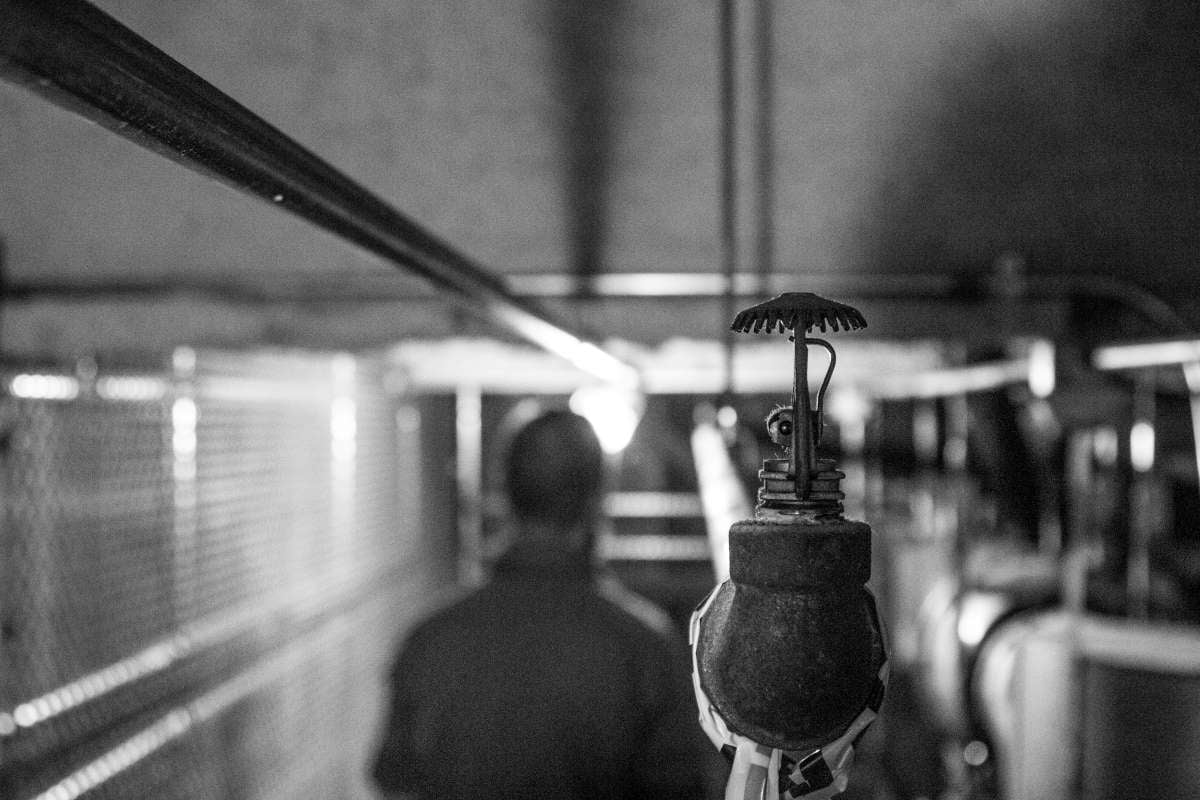
Antifreeze solutions have been used in fire sprinkler systems for decades. But, their time is almost up...or is it?
For wet-pipe fire sprinkler systems installed in areas subject to freezing temperatures, antifreeze solutions have long been used to prevent frozen pipes and other system damage. However, two fires, one in 2009 and another in 2010, changed all that.
The first was a cooking fire that set off the sprinkler system in an apartment complex. When the sprinkler above the stove opened up, the fire exploded, killing a woman and injuring her husband and three children. At the time, the cause of the explosion wasn't clear. However, it was later determined that the glycerin concentration in the sprinkler solution was more than 70%. In another incident, a mother and her young child suffered severe burns when high concentrations of propylene glycol in their apartment's sprinkler system caused a fire to quickly spread before they could get out safely.
The National Fire Protection Association Response
These incidents raised significant concerns in the fire safety community regarding the use of antifreeze in sprinklers prompting the National Fire Protection Association (NFPA) to begin conducting research and developing standards to address them. The NFPA quickly issued a series of public safety alerts regarding the use of antifreeze in sprinkler systems and in September 2012, issued Tentative Interim Amendments (TIA) to all of its fire sprinkler installation codes and the fire sprinkler system testing and maintenance code:
- NFPA 13 Standard for the Installation of Sprinkler Systems
- NFPA 13R Standard for the Installation of Sprinkler Systems in Low-Rise Residential Occupancies
- NFPA 13D Standard for the Installation of Sprinkler Systems in One- and Two-Family Dwellings and Manufactured Homes
- NFPA 25 Standard for the Inspection, Testing, and Maintenance of Water-Based Fire Protection Systems
Codes Changed Faster than the Market Could Respond
These amendments required the use of "listed" antifreeze solutions for any new installations of antifreeze sprinkler systems and phased out the use of traditional antifreeze in systems installed before September 30, 2012. A "listed" solution is one that has been safety tested and approved for use in commercial sprinkler systems.
The key provisions of these new requirements were:
- Sprinkler systems installed after September 30, 2012, must use a "listed" non-combustible antifreeze solution.
- Existing antifreeze sprinkler systems (those installed before September 30, 2012) may use traditional factory pre-mixed solutions until September 30, 2022, at which time they must be replaced with a listed non-combustible solution.
In effect, these requirements banned the use of antifreeze in new sprinkler systems because there was no non-combustible antifreeze solution yet listed. And for existing wet pipe antifreeze sprinkler systems, the clock started ticking.
The Sun Will Soon Set on Existing Antifreeze Sprinkler Systems
September 30, 2022, loomed large for owners of existing antifreeze sprinkler systems. With no listed antifreeze solution to replace the glycerin or propylene glycol solutions on which they depend, owners were looking at having to replace their systems completely.
In 2018, Tyco introduced the first UL Listed non-combustible antifreeze solution to the market, which may offer owners of antifreeze sprinklers systems the option of keeping them in service beyond 2022. However, it is not approved for every situation. It may not be used in early suppression, fast response (ESFR) sprinkler systems, or for protecting extra hazard occupancies or spaces with flammable liquids.
Dry fire sprinklers offer a good (and NFPA-recommended) alternative to wet pipe sprinkler systems. In these systems, the pipes are filled with pressurized air or nitrogen, which holds a valve that separates the main piping from the water supply. With no water in the pipes, freezing is less of an issue. Dry pipe systems can still accumulate condensation from the pressurized air and require bleeding of the condensation regularly.
Koorsen Can Help
If you have a wet pipe antifreeze sprinkler system and are weighing your options for what to do with it before September 30, 2022, Koorsen can help. With more than 70 years of designing, installing, and servicing fire sprinkler systems, our experts can help you determine the most cost-effective and reliable way to protect your structure. Talk with a Koorsen associate to find out about the full range of options available for your situation.



